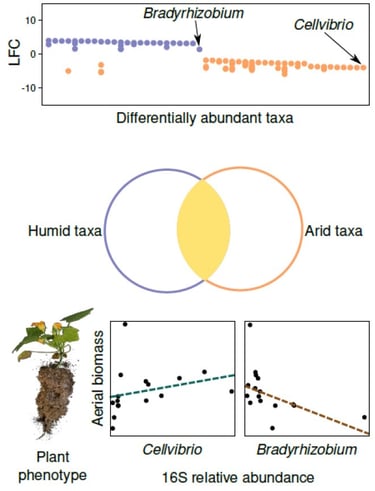Root Health as a Key to Stress Tolerance
Root microbes - possibly the most important tool in the future of agriculture?
1 min read


Root Health as a Key to Stress Tolerance
Drought, heatwaves, depleted soils – plants today are under enormous pressure. But help comes from a place that's often overlooked: their roots. Or more precisely, the microbes that live there.
The Idea
Plants don’t grow alone. They live in close partnership with a wide variety of soil microorganisms – bacteria, fungi, actinobacteria. This community, known as the root microbiome, plays a major role in how plants grow, absorb nutrients – and cope with stress.
What a Squash Plant in Mexico Has to Do with It
A study from Mexico (Hernández-Álvarez et al., 2021) shows just how powerful this partnership can be. Researchers collected soil microbes from extremely dry regions and transferred them onto squash plants. The results were remarkable:
The treated plants were significantly more drought-tolerant.
Their gene expression changed, especially in areas related to water regulation and stress response.
In short: the microbes made the plants tougher.
What We Can Learn
The study suggests that plants can be strengthened not only through breeding or fertilizer – but also through targeted support of their microbiome. That gives hope for agriculture in dry, challenging environments.
Maybe in the future, we don’t need to make plants tougher – we just need to give them the right partners at the root.
Conclusion
Root microbes are not a side note – they could become one of the most important tools in the agriculture of the future.
Source: Squash root microbiome transplants and metagenomic inspection for in situ arid adaptations; PMID: 34818799; DOI: 10.1016/j.scitotenv.2021.150136


Innovation & Technology
Probiotic soil activators for sustainable agriculture.
Contact
Newsletter
office@solvaterra.com
© 2025. All rights reserved.
